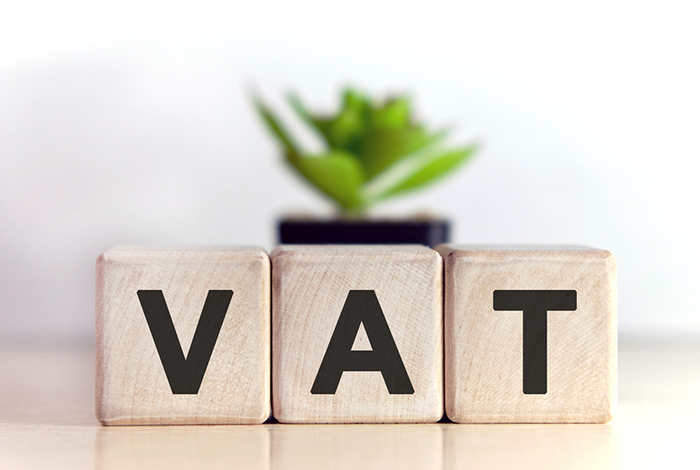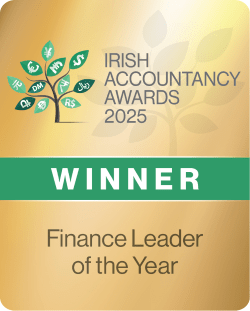Running a business involves dealing with taxes – probably the biggest headache for business owners. In Ireland, if you’re running a business, you might need to get a Value Added Tax (VAT) number. If you’re wondering, “how to get a VAT number in Ireland?”, this article will answer your questions.

Who needs a VAT number in Ireland
Everyone from sole traders and partnerships to big companies might need a VAT number. The key factor that determines whether you need to register for VAT is your annual turnover.
If you sell goods and your annual turnover is more than €75,000, or if you provide services and your turnover is more than €37,500, you’ll need to register for VAT.
When to register for VAT
When should you register for VAT in Ireland? The best time to register is as soon as your business’s annual turnover is close to the thresholds we mentioned earlier (€75,000 for goods, €37,500 for services). If you are still uncertain and need guidance then speak to a tax accountant from Around Finance.
What you need to register for VAT
Registering for a VAT number in Ireland is a straightforward process. The first step is to fill out a form on the Revenue Online Service (ROS). Depending on the type of your business, you’ll either fill out the TR1 form (for sole traders, trusts, and partnerships) or the TR2 form (for companies). These forms ask for information about your business like its name, address, type of business, and estimated annual turnover.
In some special cases, if you can’t use ROS, you can fill out a paper form and send it to the Revenue office. But remember, this is only in rare cases where online registration isn’t possible. If you need help with this, speak to one of Ireland’s leading online accountants for advice.

What you should know before you apply for a VAT number
Before you apply for a VAT number in Ireland, you must be able to demonstrate a legitimate need for a VAT number. This could be due to the nature of your business, your turnover, or your trading relationships. Keep these points in mind when you start the process:
- The business has active trading activity in Ireland. This could be through selling goods or services to Irish customers, or buying from Irish suppliers.
- You have invoices from Irish suppliers and customers.
- The business owner or one of the directors must be an Irish resident.
- You must have a physical office in Ireland.
Reasons why revenue might reject your VAT application
Even if you’ve followed all the rules, there are still reasons why your application for a VAT number might be rejected. Here are a few reasons why:
- You’re not hiring employees in Ireland. If your business doesn’t have any employees in Ireland, ROS may reject your application for a VAT number.
- No customers in Ireland. If your business doesn’t have any customers in Ireland, this could also lead to a rejected application.
- You are not trading with any suppliers in Ireland. If your business doesn’t have any trading relationships in Ireland, this could be a reason for rejection.
- The Directors are not based in Ireland. If none of the directors of your business are based in Ireland, your VAT number application may not be approved.
Remember, these are just some of the reasons why your application might be rejected. Each application is assessed on its own merits, and there may be other factors at play. You can always reapply once you’ve addressed the issues raised by Revenue.
How long until I get my VAT number?
Once you’ve sent off your registration form to get your VAT number, you’ll usually have to wait about 7-10 working days. But remember, this is just an average waiting time. It might take more or less time depending on whether the Revenue office has any questions about your application.
Applied for a VAT number – what’s next?
So, you’ve registered for VAT. What’s next? Well, there are a few rules you need to keep in mind. One of the big ones is that you need to file a VAT return every two months. Think of it as a diary where you jot down all your sales and purchases, work out how much VAT you owe, and then report it to the Revenue office. And yes, you’ll need to pay any VAT due. If you forget to file your VAT returns or make payments on time, you might have to pay a penalty. So, it’s best to stay on top of this.

Benefits of VAT registration
Now, you might be thinking, “Is VAT registration all about following rules?” Not at all! There are some perks too. One of the main benefits is that you can claim back the VAT you’ve paid on certain business expenses. For example, if you paid VAT on purchases from a supplier you can offset that amount against the VAT your owe Revenue for the same period.
VAT rates in Ireland
In Ireland, the VAT you charge depends on what you’re selling. The standard rate is 23%. But some items have a lower rate or are even exempt from VAT. For instance, children’s clothes and books don’t attract VAT, while food and drink, except alcohol, are charged at a reduced rate of 13.5%. So, it’s important to know what rate applies to your products or services. You can find the latest VAT rates on Revenue’s website.
Keeping track of VAT
Once you’ve got your VAT number it’s important that you keep track of input and output VAT and are able to calculate the final amount due to Revenue. For this, you’ll need reliable bookkeeping services in Ireland. The team at Around Finance can help you get this right and avoid VAT complications.
If you have any more questions on how to get a VAT number in Ireland, speak to our team today.











